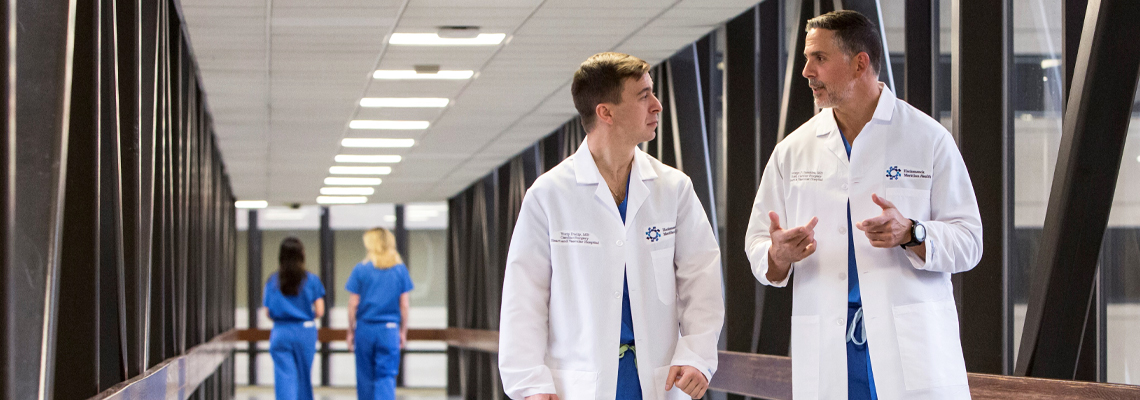
By Brianna McCabe
Sharing is caring… except when it comes to germs.
According to Susan Hanrahan, MS, CIC, CRCST, Infection Prevention Manager at Jersey Shore University Medical Center, germs are microscopic organisms that can either cause disease or live in harmony with us—and they are everywhere (literally).
So, it must be pretty easy to imagine that your office isn’t somehow isolated from these ‘bugs.’ After all, the U.S. Bureau of Labor Statistics states that American adults spend more of their waking hours between Monday and Friday at the workplace than anywhere else, including home. “That’s a lot of time, a lot of people and a lot of germs,” says Susan.
According to the expert, here are 5 spots in your workplace that are generally loaded with germs:
Office toilets. “This one actually may not be that much of a surprise,” she admits. “All toilets have the potential to harbor germs that can make us ill.” However, just because this might be common sense for some, it doesn’t mean that every single person washes his or her hands after using the bathroom. A Centers for Disease Control and Prevention (CDC) report said that only 31% of men and 65% of women wash their hands after using a public restroom.
Susan recommends the following hygienic tips when using a restroom, especially one in an office (or any public facility):
Use a paper toilet seat cover
Use a paper towel as a barrier when touching the door handle to exit
Carry and use hand sanitizer
Thoroughly wash your hands
Communal kitchen sponges. It does serve its purpose for nicely washing dishes, Susan explains, but it can become a reservoir for food-borne bacteria such as E.coli and Salmonella if used beyond dishwashing. “If the sponge isn’t routinely discarded it can become grungy,” she adds. “And if you use that sponge to then wipe down counter surfaces, you could be trailing and spreading even more germs.”
Instead, Susan recommends using disinfectant wipes or paper towels filled with disinfectant spray to clean those surfaces—and remember to follow the time provided by the manufacturer to achieve disinfection. “All household cleaners have a ‘dwell time,’” she says, “which means that the chemical in the disinfectant needs to remain wet for a set amount of time in order to kill the germs.”
Desk keyboards. Some research has noted that a computer keyboard has 200 times more germs than a toilet seat—and Susan believes this is because they are filled with “lots of nooks and crannies.” However, she says that you shouldn’t try to achieve total disinfection because this is a near impossible feat. Instead, she says to follow these simple rules:
Wash your hands routinely
Clean your keyboard with a disinfectant wipe daily (refrain from using a spray as this can over saturate and ruin your keyboard)
Refrain from touching your face
Desk phones. Office phones can harbor more than 25,000 germs per square inch, according to an article published by Occupational Health and Safety (OHS), as they accumulate germs from your hands, mouth and nose. “If the phone is shared amongst coworkers then the exposure to flu and cold viruses increases,” says Susan. She suggests routinely wiping down the office phone with a disinfectant wipe, washing your hands frequently and refraining from touching your face. "Also, practice respiratory etiquette by wiping down the communal phone if you're sick," she adds.
Elevator buttons and doorknobs. “Elevator buttons and door knobs are a pet peeve of mine,” says Susan. “Let’s agree to stop using our shirt and jacket sleeves as the barrier between your hands and the elevator button and doorknobs. You are heavily contaminating your sleeve with pathogenic germs and then continuing to wear that contaminated garment throughout the day.” Instead, she advises using your hands and being mindful of not touching your face before you have a chance to either wash your hands or sanitize them.
“If possible, stay home from work, school and errands when you are sick,” advises Susan. “This will help prevent spreading your illness to others and/or having these germs live on any surfaces.”
The material provided through HealthU is intended to be used as general information only and should not replace the advice of your physician. Always consult your physician for individual care.
Resources:
Bureau of Labor Statistics: American Time Use Survey
Centers for Disease Control and Prevention: Handwashing
Occupational Health & Safety: Top 5 Germiest Places in the Workplace